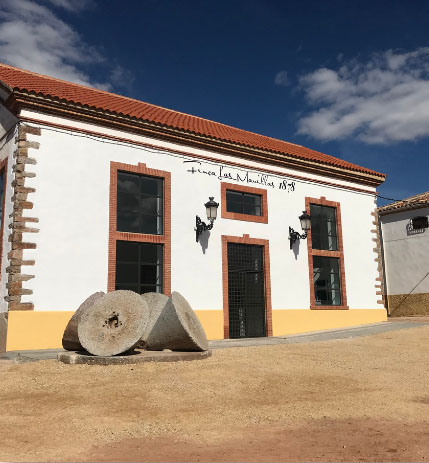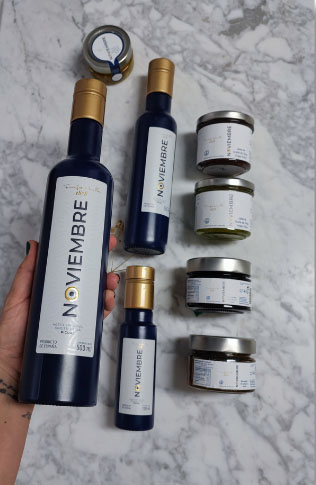
Our family estate
Since 1878, four generations of the Finca Las Manillas family have been able to maintain the traditions in the production of exceptional quality EVOO, while continuing to adapt to new technologies, to promote excellence in the service of their customers and respecting the environment.

Some elements of the old mill, built in 1935, are still preserved, such as the roller mill, also called the conical stone. This piece began to be used in Spain at the end of the 18th century. The empiedro, which is also called the solera, is a circular stone base formed by three, four or more blocks on which the grinding wheel or roller rotates. The axis of rotation of the entire oil mill system rests on the stone.
The wisdom of the master miller following in the footsteps of his father, our former miller, is present contributing all his experience in the process, from the picking of the olives to the cold extraction, with a small but new and modern extraction facility and packaging plant that make our limited production of EVOO exceptional.
The limestone and clayey composition of our soil, the plantation of our olive groves, the extreme agroclimatic conditions, a hundred-year-old olive grove, the Picual variety together with its early harvest, always in flight, in mid-October early November, its grinding immediately after harvesting, and the delicate process of beating and cold extraction, are part of our careful work.
Our process
The harvesting process is pampered to the millimeter, using the ultrasound vibration technique on the trunk and finalizing the harvest with traditional manual shaking, ensuring that the olive tree suffers the least damage. The fruit is picked up in flight, preventing it from ever touching the ground.
In a few hours, the recently harvested olives arrive at our mill. After the first inspection of the fruit, where we verify its healthy appearance, we proceed to clean the olives, separating the leaves and branches using pressurized air. Afterwards, the olives are cleaned and they enter the storage hopper. From here the olive is passed to the grinding process and a very short blending time in which it will not exceed 20ºC. This phase of the process is critical, because this is where we are going to ensure that all the volatile elements responsible for the nuances and attributes of our oil are preserved to a greater extent.
Next, the centrifugation will begin, which separates the solid part from the liquid, due to the effect of the specific densities of each one of them. Finally, we go to a vertical centrifuge in which the oil is separated from the water.
And now we proceed to carry out the tasting and classification of each oil and its storage in different inerted stainless steel tanks, within our air-conditioned cellar, guaranteeing its optimal conservation.




